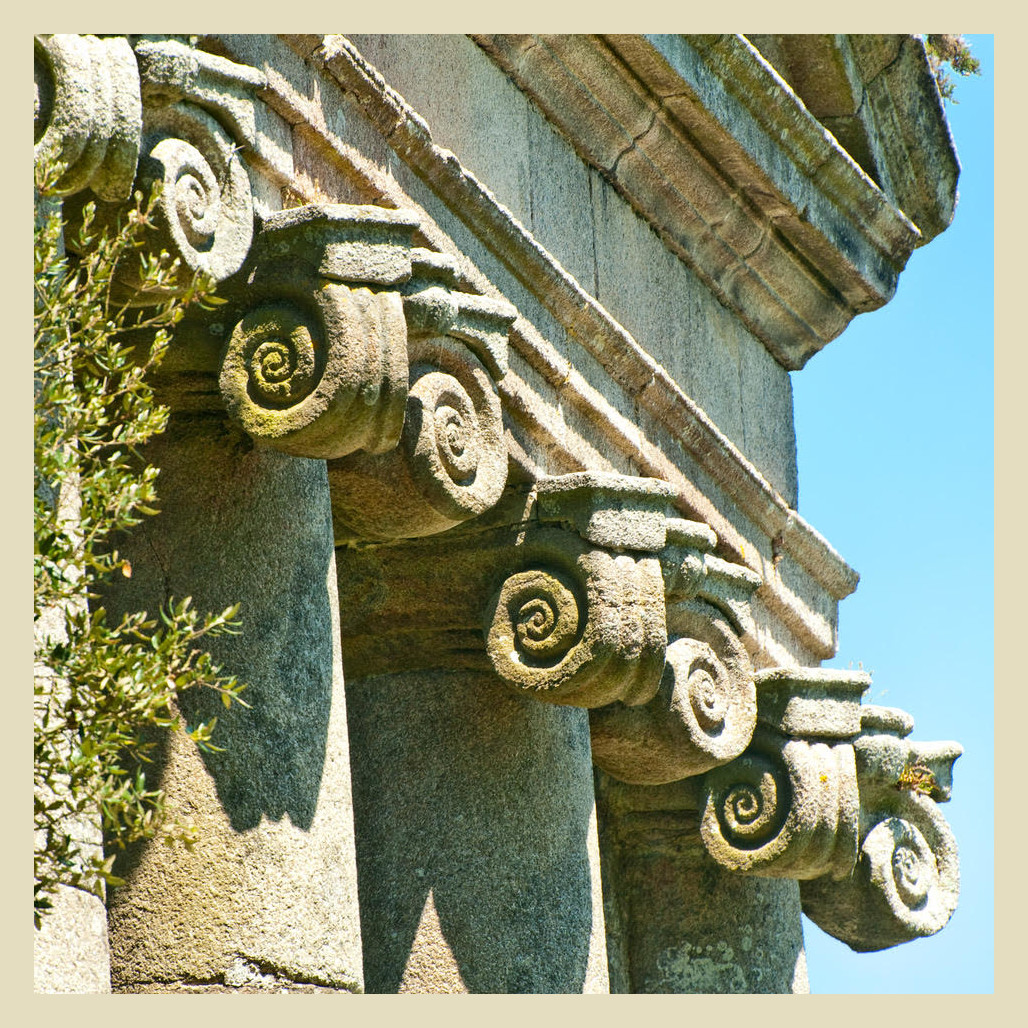by Michael Carver
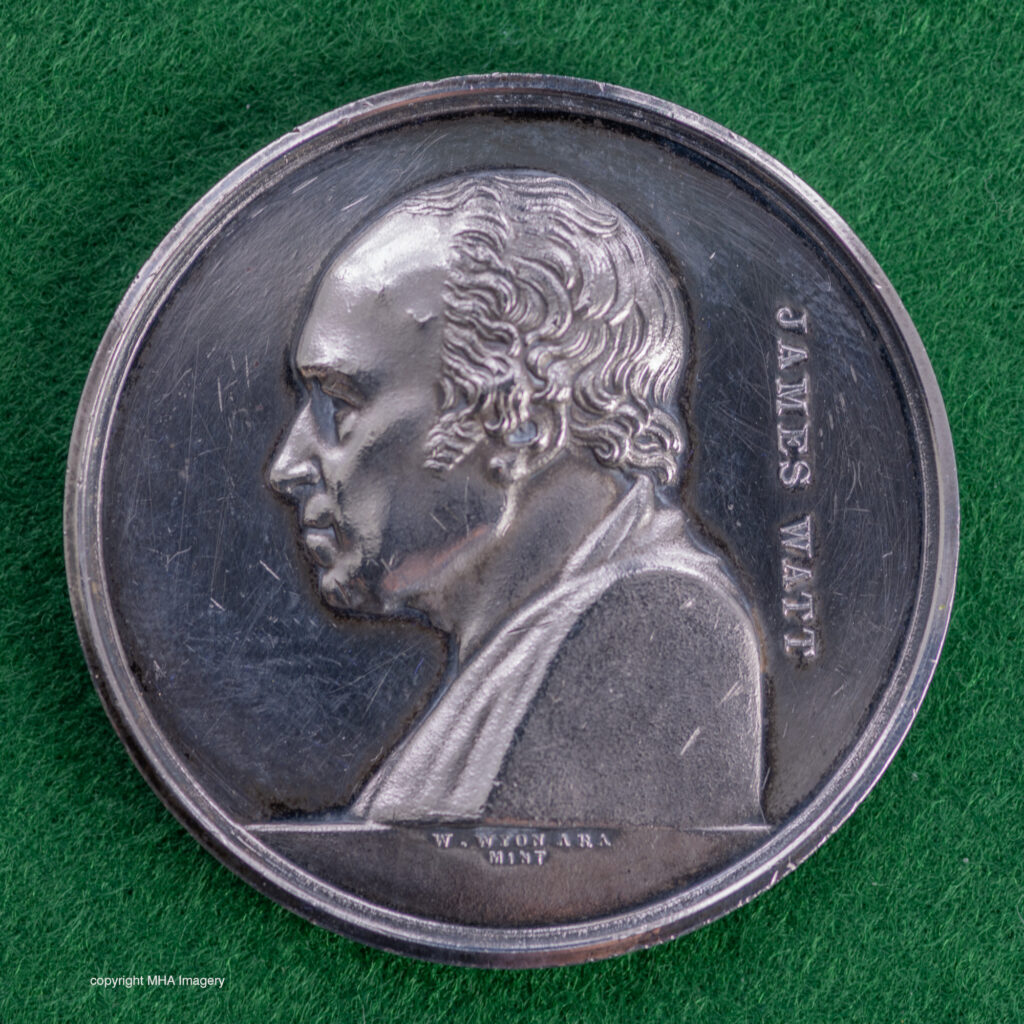
Carclew is one of the last surviving places where social, cultural, educational and economic impacts of the Cornish mining boom can be experienced and comprehensively understood.
Patrick Newberry, Commissioner for Historic England
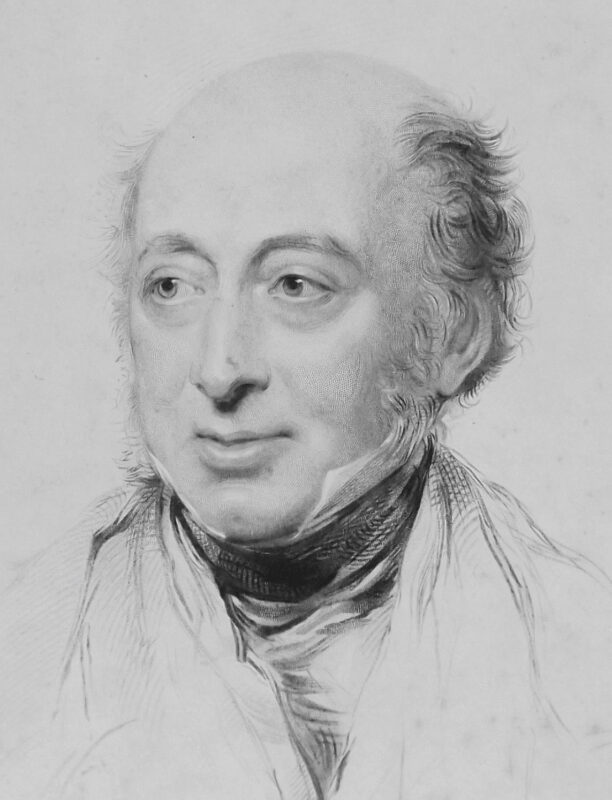
The first President of The Royal Cornwall Polytechnic Society in Falmouth (now The Poly) was Sir Charles Lemon of Carclew, who remained so until 1867, one year before his death.
The Royal Cornwall Polytechnic Society in Falmouth was founded in 1833 at the suggestion of Miss Anna Maria Fox, age 17, elder daughter of the polymath Robert Were Fox. Her proposal was intended to encourage clever workmen in the family’s Perran Foundry, who brought models and inventions to the supervisor, her uncle Charles Fox.
With her father’s support, the new society’s aim would be ‘encouragement of the arts, and particularly of any new and useful inventions. An exhibition to be held once a year when prizes will be awarded.’ Cornwall’s principal industry was in sore need of improved machinery for de-watering the mines, extending the lodes, and improving working conditions for the miners.
The first two exhibitions, held in Falmouth’s Classical and Mathematical School, had been so successful, and so overcrowded, that the Committee decided the Society needed a permanent home.
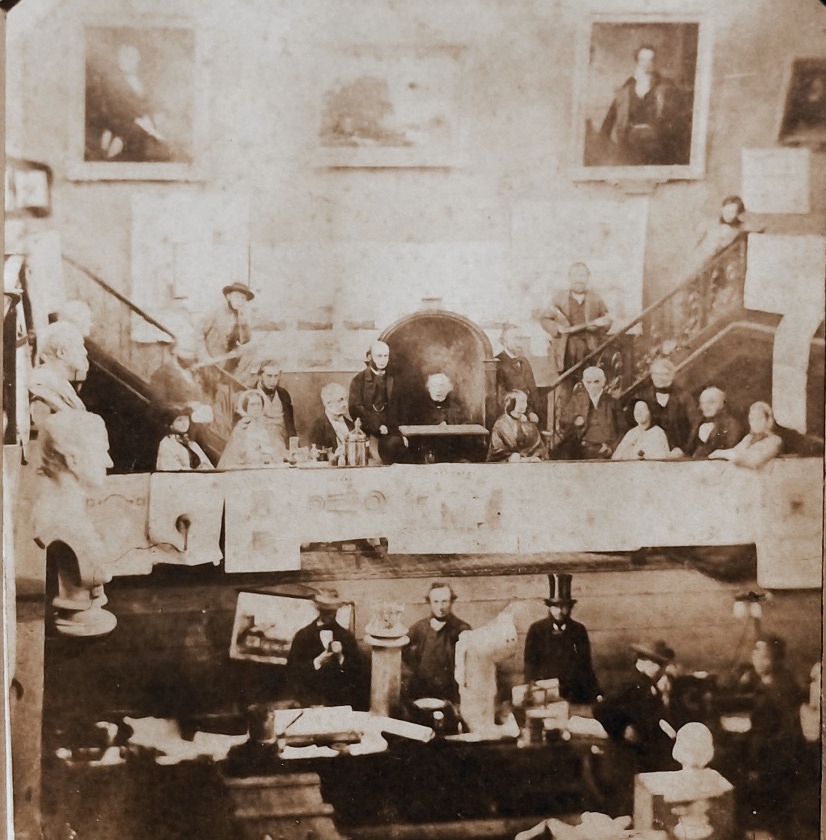
Sir Charles Lemon, in the Chair.
Right – W. Hustler, Robert Were Fox, W. Carne, Alfred Fox, and Christian Hustler.
Left – Sydney Hodges, Secretary, David Barclay. © The Poly
By 1835 the great Polytechnic Hall had been built, and the exhibitions proved popular immediately – as did the prizes: Silver or Bronze medals designed by William Wyon, chief engraver at the Royal Mint.
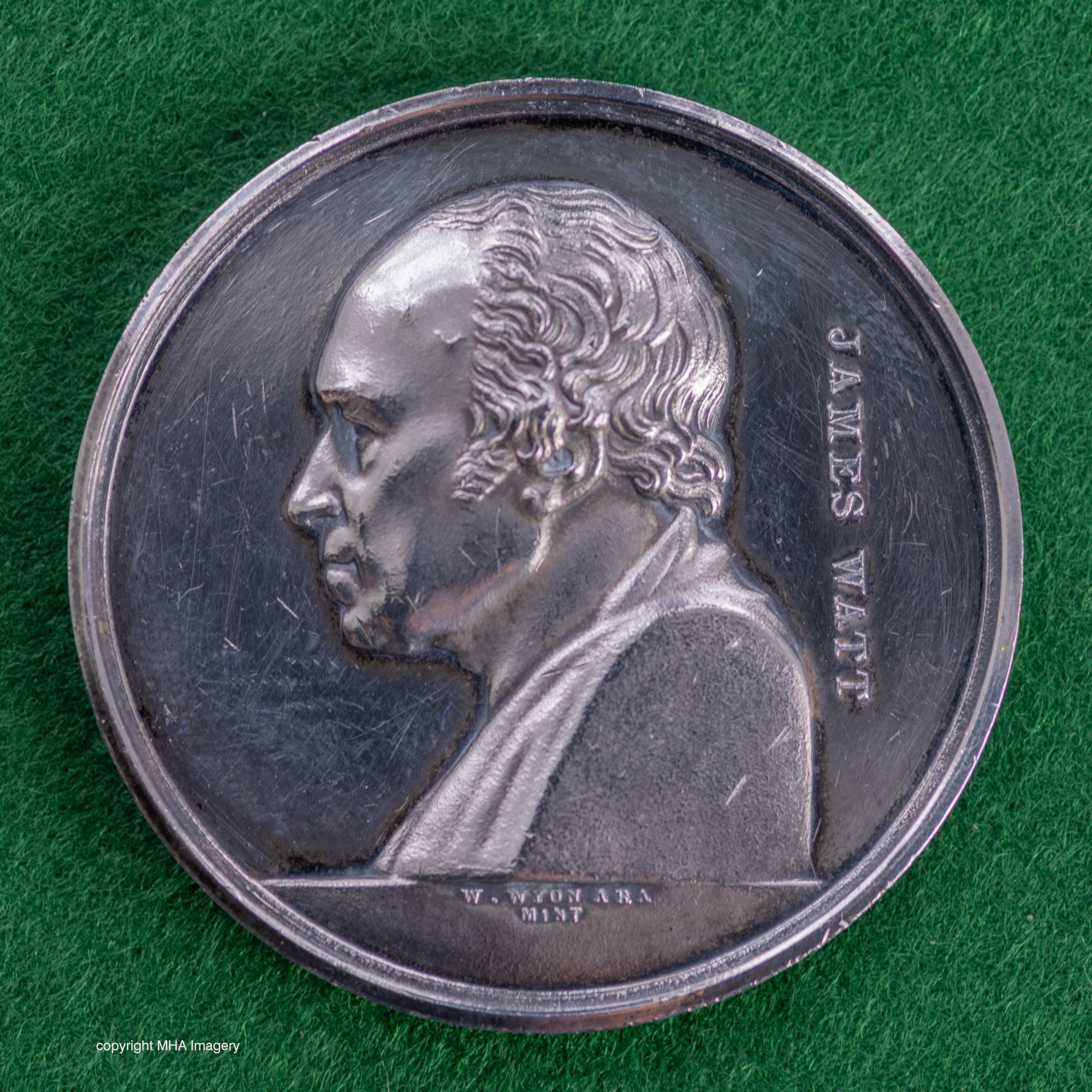
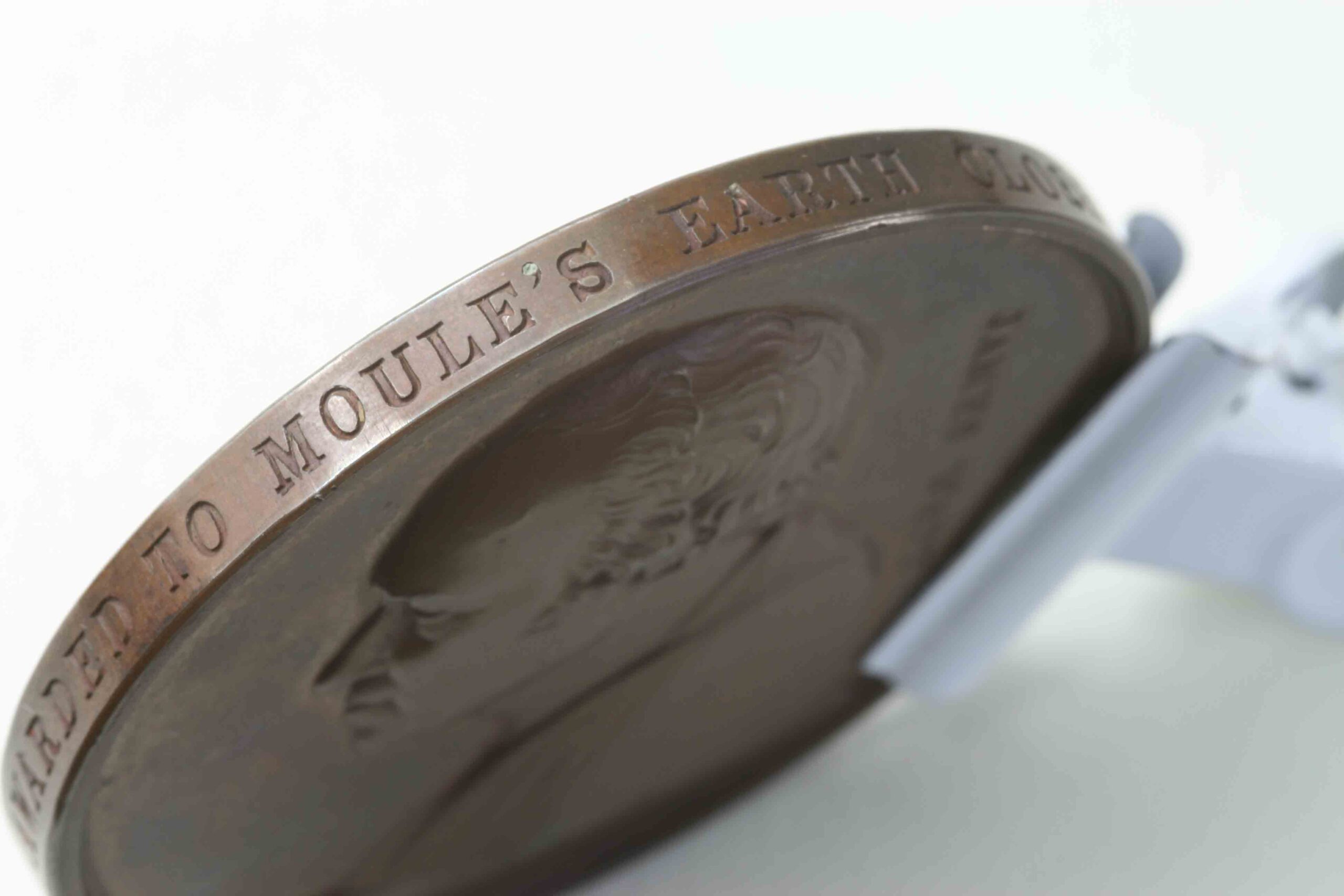
The obverse showed the head of James Watt, and round the rim were engraved the name of the winner, the date, and the class of exhibit. Four Gold medals were awarded in the Poly’s early days, one of them to Sir Charles Lemon, who remained President for 34 years.
In 1947 the Poly withdrew the programme as being no longer effective, but it has now been reinstalled with new medals, designed by Lucy Willow, under the categories Arts, Sciences and Industry:
“The fern reaches back into deep time, yet it also celebrates new beginnings in the present as it unfurls its foliage towards the future.”
Lucy Willow
The first three new medals were awarded in 2024.
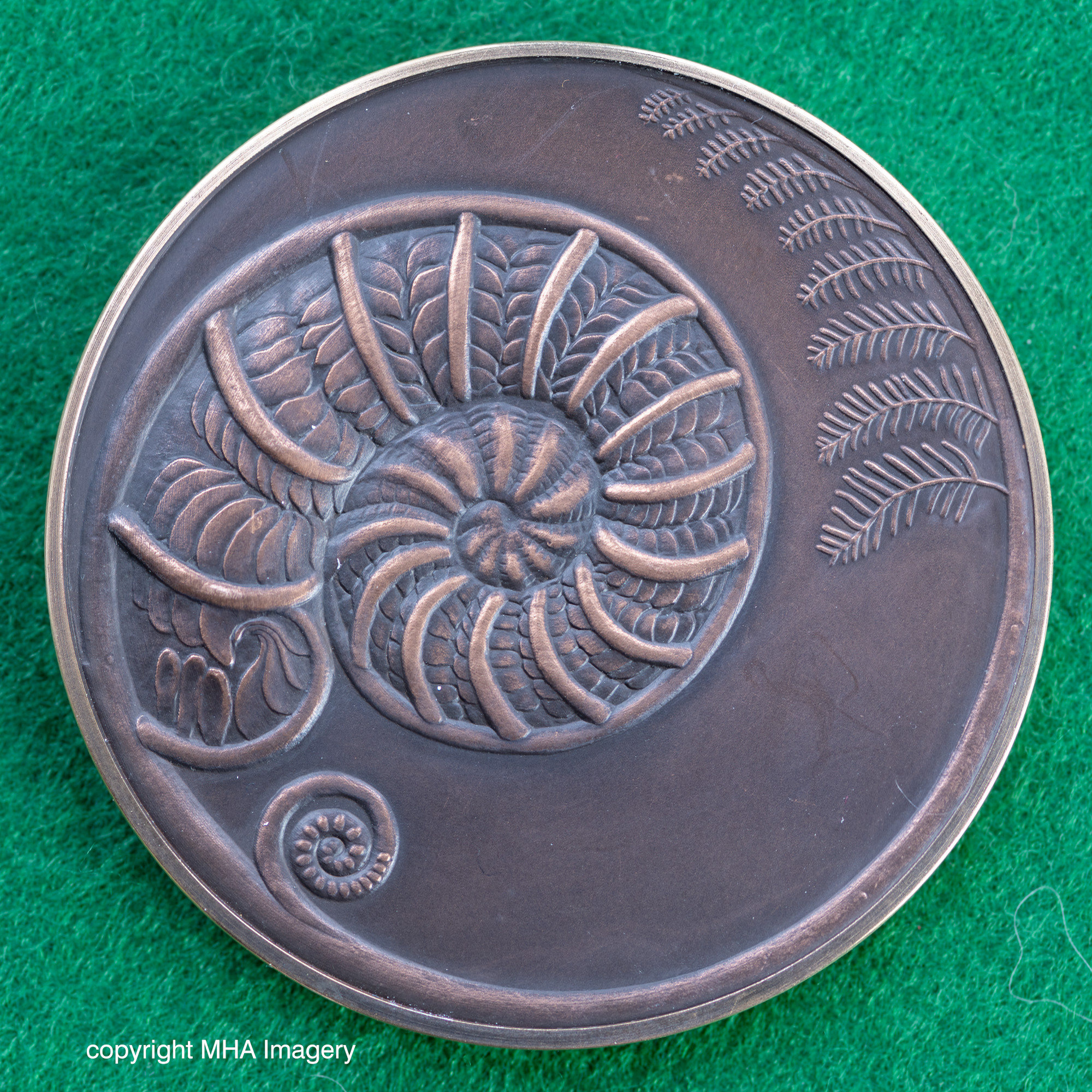
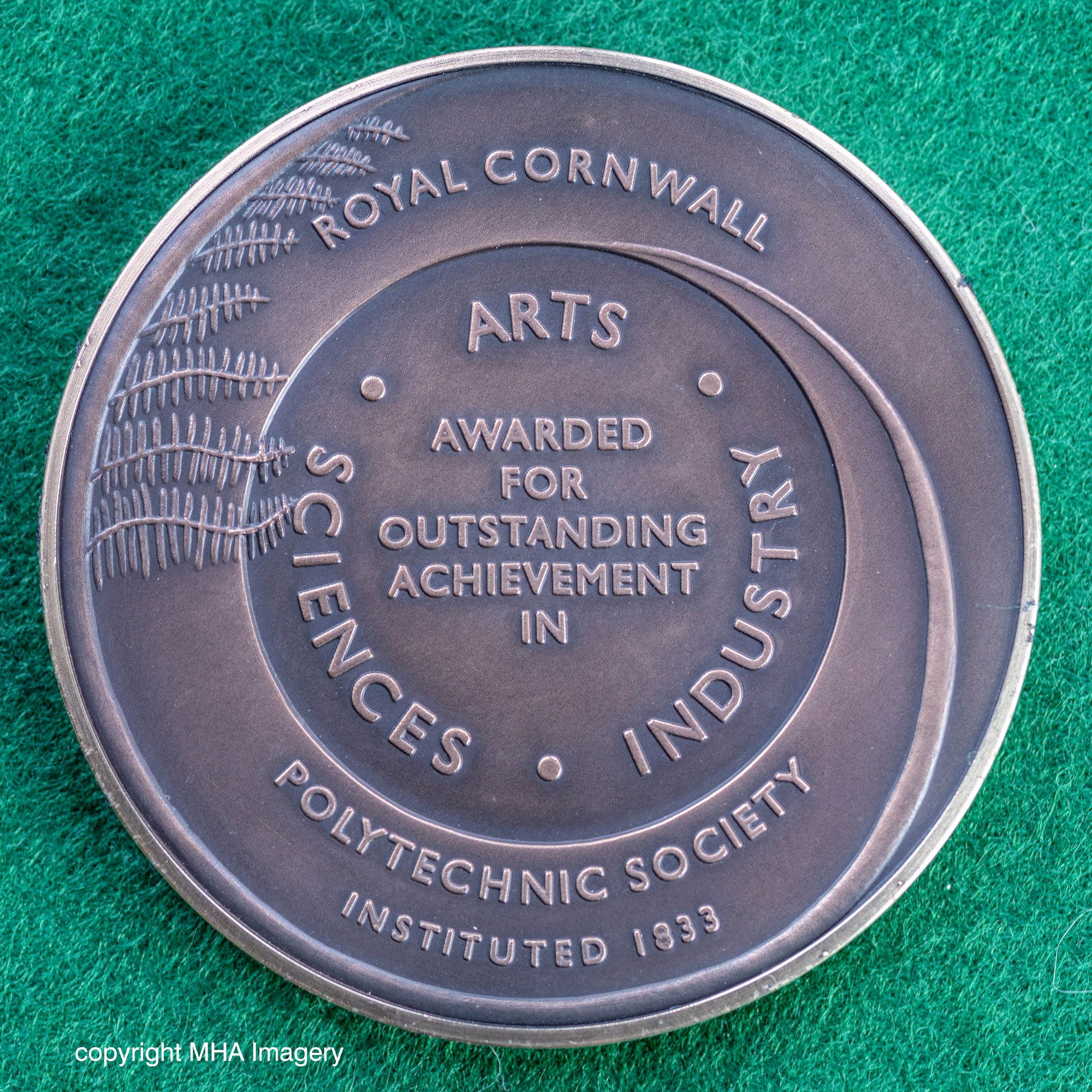
The story of the Poly over nearly 200 years has depended on the commitment and voluntary support of its many friends and members. Without Sir Charles Lemon’s influence, generosity and unchanging loyalty, the popular Falmouth Arts Centre might not exist on Church Street today.
